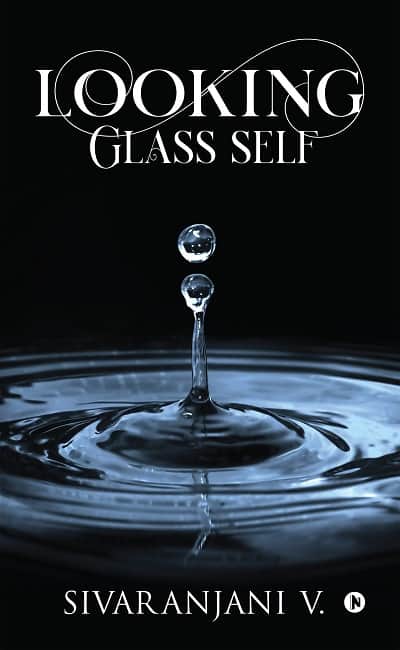CONCEPT: 3/5 WRITING STYLE: 3/5 CAPTIVATING FACTOR: 2.5/5 POETIC VALUE: 2.5/5
“The one who smiles is the one desiring love, While those helpful desire help, We remain exceedingly single-minded, Oblivious to others cries and whelps.” -Sivaranjani Viswanathan, Looking Glass Self
My Thoughts
‘Looking Glass Self’ by Sivaranjani Viswanathan is a poetry compilation which consists of 40 poems. Just like the title, this book features numerous occurrences of metaphorical instincts which leave the reader amazed and muddled at the same time.
Throughout the book, the various poems illustrate aspects of life through numerous means. It portrays the facade of life through various perspectives like human beings, animals, supernatural creatures, etc.
Although the book stresses the bitter truth of situations, there are instances where the words and the underlying messages take an extreme turn. Almost to the brink of negativity.
There are also junctures where the reader may feel like the poems are contradicting with the modern understanding of positive thinking. There are also a few rough explications that may seem unoptimistic to a few readers.
In most of these verses, the harsh reality of life is glorified. For example, in the poem titled ‘Evasive Decrees’, the societal stereotypes which turn a victim into a villain through emotions and blaming are triggered.
Overview
Every poem in “Looking Glass Self” lays focus on a different occurrence in life. However, all of them are tied together with the core motive of expressing a different side of life. The particular poem, named ‘reminiscence’ is probably my personal favorite out of the bunch. It depicts the contrast between a countryside hometown and an urban town beautifully.
The poet tries to associate the stereotypical Alpha nature to humanely fear of living alone. This poetry compilation greatly stresses the importance of taking small steps over giant leaps. All in all, a deeper meaning can be extracted from these poems beyond the words used.
I feel like this book is a piece that can be interpreted in both positive and negative ways. It partially depends on the reader’s point of view and mental state at the time of reading.
Decoding the Hidden Messages
As I said, the meaning and feeling run beyond the words in the case of these poems. In light of this fact, I have decoded a few underlying messages that I feel are worth mentioning.
In a time where people are tackling any kind of fear and violence that lurks their way, this book throws light on the fact that there is still the fear of violence in the minds of the oppressed and the underprivileged. It opens a new and positive side of privileges. It proposes them as a way of raising voice and opinions. The book encourages the privileged class to use their privileges to their advantage and help in the betterment of society.
In addition to the positive side, it also depicts the negative side of privileged classes like the English, the upper caste, etc.
One particular poem pays attention to the underrated aspect of content creation, plagiarism. It depicts how the hard work of a person can be stolen by those who he/she considers a comrade.
Through the relationship of a horse and his blinker, the poet tries to indicate the untold cons of freedom.
Another splendid value one of the poem gives is the importance of appreciating your own self. Human beings often associate happiness with societal standards and forget to find satisfaction and happiness from within the soul.
It throws shade on the hypocrite society which preaches unison and the end of differences.
As you can see, there is a myriad of messages hidden in these poems. Even the last poem in this book leaves the reader doubting the current Indian governmental practices. The poet carefully sketches the similarities between the British Raj and the ongoing system.
Worth A Read or Not?
Although this book goes on to portray the bitter side of society and life, it can be easily misinterpreted as negative preaching.
The vocabulary used in this piece is fairly simple and understandable.
Apart from this, the poems themselves contradict each other quite a lot. If one looks at the deeper meaning of the poetry, it might make a little sense. But all in all, this book can be viewed as paradoxical in the first instinct.
To sum it up, you can read this book if you are in the mood for reading intense and deep poetry. If you are the one who goes by the words, it would be best to give this book a pass.
Can’t wait to read it? Buy your copy of “Looking Glass Self” using the link below.
